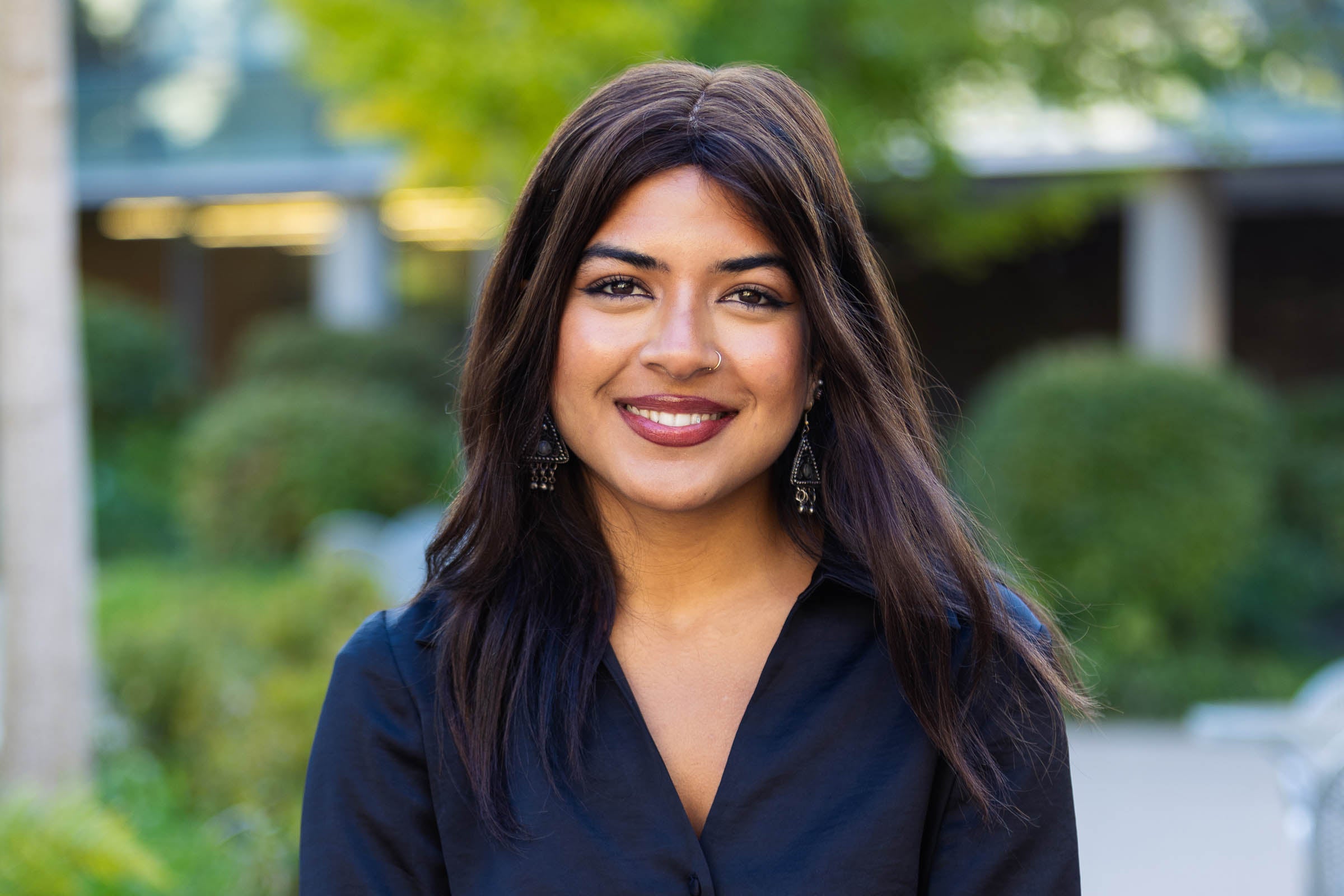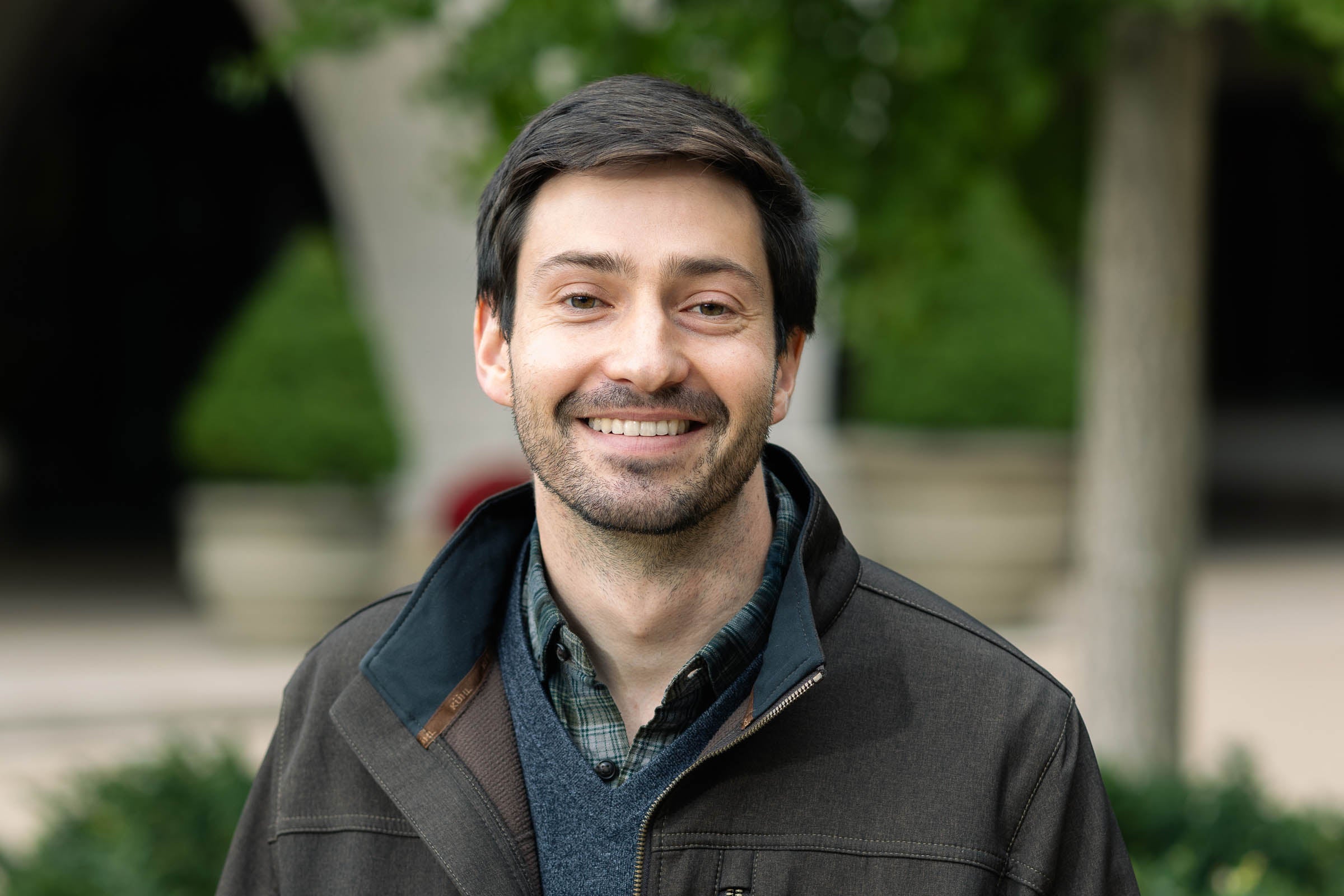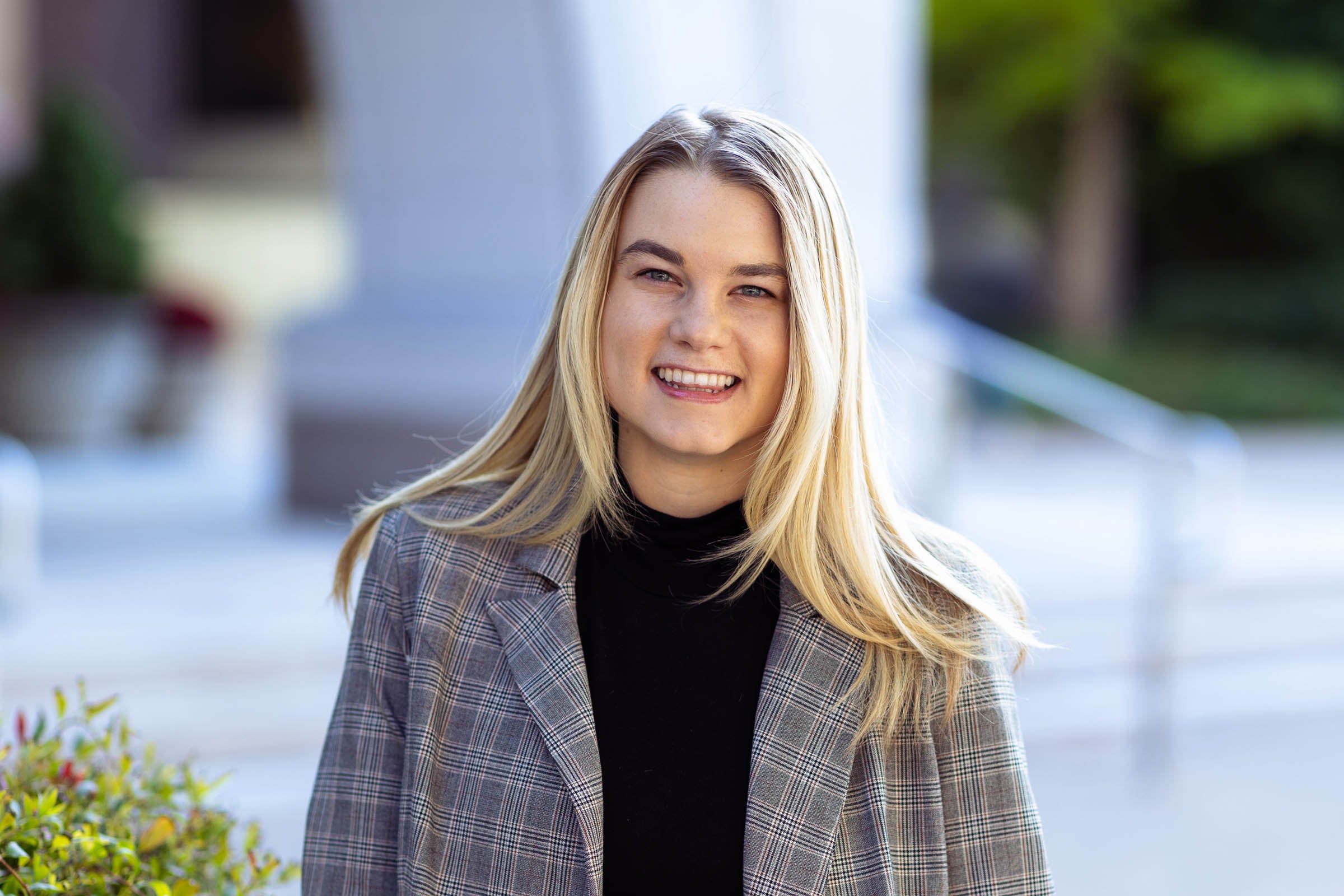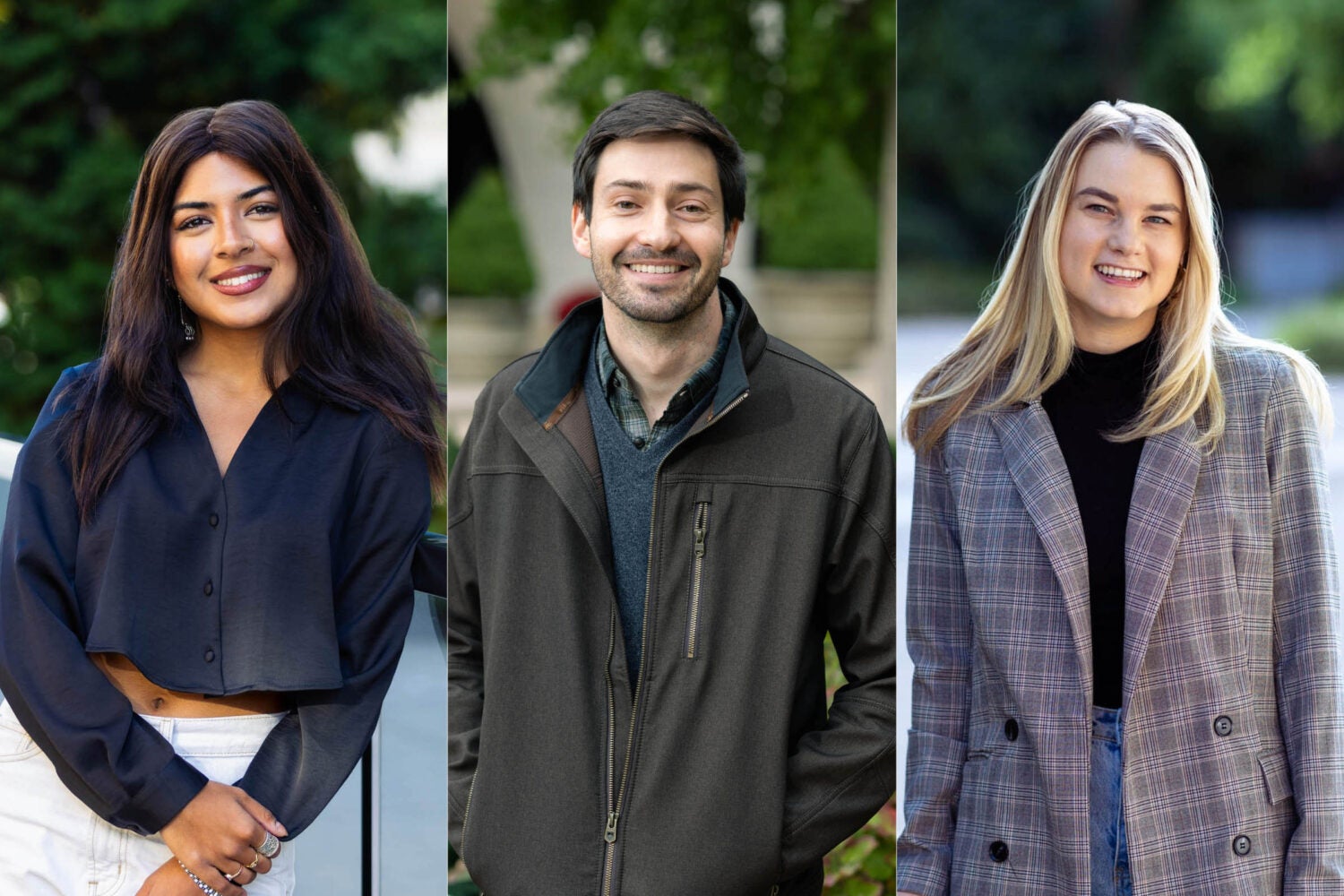Every summer since 2001, the Chayes International Public Service Fellowship, founded in honor of Harvard Law School Professor Abram Chayes ’49, has enabled Harvard Law students to work with international organizations, governments, and NGOs around the world.
In 2024, 16 Chayes Fellows had placements in 11 countries. Their work involved accessing ancestral land for indigenous peoples, protecting whistleblowers, ensuring migrant workers’ rights, and affirming freedom of expression, among other issues. These profiles describe the experiences of three of the 2024 Chayes Fellows.
Supriya Mishra ’26, Campaña Colombiana Contra Minas, Colombia

In her work with Campaña Colombiana Contra Minas (CCCM), Supriya Mishra ’26 drew on her interests in disarmament and land restitution, along with Latin America. Between college and law school, Mishra spent a year in the region, where she met an Indigenous family living in Tayrona National Park near Colombia’s northern coast who had been relocated due to land restitution and demining operations. The issues the family faced resonated with her, and she sought a 1L summer placement to address them.
CCCM is the largest disarmament initiative in Colombia, and its work is closely tied to the country’s recent history of conflict. “They work to remove land mines that had been scattered throughout Colombia, particularly during the conflict with the Revolutionary Armed Forces of Colombia (FARC),” she said. “In 2016, the Colombian government signed a peace accord with FARC, but FARC never truly dissolved. Instead, it fractured into a number of smaller, nomadic paramilitary groups. To facilitate their drug-trafficking operations, they are planting more land mines in order to keep authorities and other people away from border areas.”
They also deploy killer robots, a type of improvised explosive device. “The technology is rapidly advancing, and so is the need to clear out these devices,” she says. “It’s not just Indigenous communities that are affected, but also immigrants coming from Ecuador and Venezuela who aren’t aware of these devices.”
The Colombian government initially had been charged with clearing the mines but did not succeed in building relationships with paramilitary organizations or indigenous communities. To negotiate access to the affected territories, CCCM meets with these groups to understand their concerns and then works through internal committees and external community development to secure access to services such as medical care, re-housing, and re-employment.
Mishra said that CCCM receives some funding from the U.S. Department of State, so it must comply with U.S. regulations. At the beginning of her internship, she was asked to compile a list of all relevant laws and provisions — domestic and international regulations and laws, treaties, U.N. Security Council resolutions, executive orders and enabling statutes — related to narcotics trafficking and terrorism-sanctions programs. Mishra admits that the project seemed daunting at first but she was able to use Colombian and U.S. legal databases and information from the U.S. Department of Treasury’s Office of Foreign Asset Control and from the United Nations to begin drafting a compliance manual for the NGO.
While in Colombia, Mishra experienced the country’s strict water rationing program. “For groups that are nomadic, knowing the schedule for water rationing helps them decide where to travel next, and I became interested in thinking about what kinds of information we could offer them while still adhering to relevant regulations.”
At her recommendation, in negotiating an agreement with a paramilitary group, CCCM included water-rationing route information in exchange for permission to enter territories and remove mines. This strategy, she said, helps to mitigate risk because it does not involve funding and so does not violate compliance rules. Moreover, it helped to advance demining.
Mason Barnard ’26, International Commission of Jurists, Belgium

As a J.D. student pursuing a joint Ph.D. in sociology, Mason Barnard ’26 has broad interests in human rights and legal reform. His work over the summer with the International Commission of Jurists (ICJ) allowed him to focus on the issue of ensuring judicial independence and to gain a deeper understanding of day-to-day lawyering in human rights.
The ICJ, he said, “serves as an intellectual and strategic resource for researching novel approaches to protecting human rights, democracy, and the rule of law, while also supporting the litigation and advocacy efforts of European and international human rights practitioners through amicus briefs, lobbying, and assessing the efficacy of E.U. (European Union) legal and policy decisions.”
Barnard’s primary work involved legal research and writing for an E.U. report on legal tools to strengthen judicial independence across Europe. Initially, his contribution focused on identifying and summarizing relevant domestic and international litigation in countries of concern, including Bulgaria, the Czech Republic, Hungary, Malta, Poland, Romania, Slovakia, and Slovenia. Many of the cases, he learned, involved judges who were disciplined arbitrarily or for politically motivated reasons, while a subset involved the legality of reforms to a country’s judicial system.
He found that Harvard Law School’s first-year curriculum helped prepare him for this work. “Having a foundation in how to read a case, and how to think about it, was very helpful, especially since I was reading cases across different types of courts, legal regimes, and jurisdictions. International law cases — especially European and continental cases — read quite differently from American cases, but a lot of the same principles apply.”
One of his goals for the summer was to strengthen his legal writing skills, so Barnard asked his supervisor if he could draft a section of the report. “I had already done the research; writing let me piece everything together and think critically about the issues involved.”
“Even though countries have laws on the books that ensure judicial independence, there’s also a social and cultural component in how the law is treated and actually used,” Barnard said. Hungary, for example, passed a law forcing judges to retire at a certain age. “Having a judicial retirement age is fairly common, but this law was passed as a means of getting rid of dissident judges appointed by a previous administration, who tended to be older.”
In other cases, a legal system may have rules in place designed to prevent interference with the judiciary but that still face impediments. “In some countries, particularly those with a Communist legacy, one-party rule is deeply embedded, so even if there are legal rules about keeping judges independent, social norms and cultural practices may weaken or impede their implementation.”
“I went abroad to experience other countries’ judicial systems, and this has shifted my perspective toward thinking more clearly about what judicial reform would look like in the United States. What models could we pull from?”
Elena Ivanova ’26, European Bank for Reconstruction and Development, United Kingdom

Before enrolling at the Law School, Elena Ivanova ’26 spent three years as a consultant at Deloitte, where she worked with the U.S. Agency for International Development on climate and energy projects abroad in its partner countries. In studying law, “I was interested in how countries are adapting to or mitigating climate change, with the understanding that the resources available to them are disparate. The European Bank for Reconstruction and Development (EBRD) is very involved in climate finance, with a majority of its deals supporting renewable energy generation and other greenhouse gas emission reduction projects in its countries of operation.”
During her placement with EBRD, Ivanova participated in operations committee meetings, at which the bank’s board decided whether to approve projects based on need, the promotion of privatization in emerging markets, integrity considerations, and greenhouse gas emission-reduction impacts.
She drafted a climate-resilient debt clause for loans to sovereign entities that would permit them to delay loan repayments if there were a climate-related disaster. Ivanova also assisted in drafting documentation and helped to negotiate sustainability-related provisions for several transactions, including a bond issuance for a Turkish retailer that included a requirement that the company install solar panels on its new stores. It was interesting, she said, to see how the process worked, with input from the legal and banking teams, and outside and local counsel.
One project that she found both interesting and challenging involved cross-border subsidies. The World Trade Organization has an agreement with all member states, the WTO Agreement on Subsidies and Countervailing Measures, that addresses prohibitive and distorting subsidies that states might provide to entities within their jurisdiction. One example is the inclusion of a local content requirement, such as making the subsidy contingent upon the use of domestic goods. These subsidies, typically prohibited, can be challenged by other member states because they create an unfair benefit and prevent free trade and competition.
“The E.U., the U.S. and Canada have been pressuring development banks to play a bigger role in regulating these subsidies,” Ivanova said. “I conducted research to determine why this kind of intervention was needed, and what states were doing at the national level to prevent companies benefitting from these subsidies from gaining an unfair level of market share. The EBRD does not have a mechanism in place to evaluate these subsidies and would be the first development bank to create one.”
During the summer, Ivanova also drew on what she had learned as a consultant about the value of networking. With her supervisor’s encouragement, she had coffee or lunch with dozens of ERBD lawyers working in different specialized roles, to learn more about how they came to the bank and what they enjoyed about their work. “The summer taught me what it means to be a transactional lawyer,” she said, “and I am now considering how best to use those skills in litigation and policy advocacy work for international development.”
Want to stay up to date with Harvard Law Today? Sign up for our weekly newsletter.
